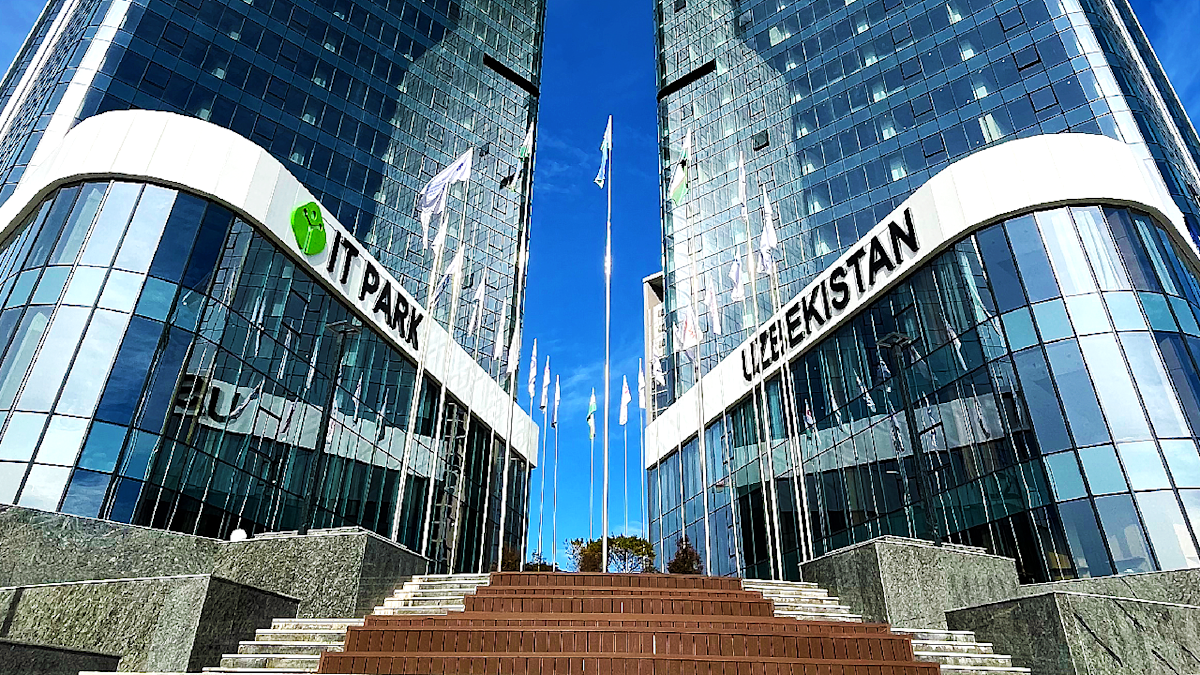Uzbekistan’s growing digital economy and deepening trade ties with the U.S. are positioning the country as an emerging technology and logistics hub in Central Asia, according to ITF Group CEO Sam Burkhan.
Burkhan, whose company operates logistics and outsourcing centers across multiple countries, said Uzbekistan’s IT Park has become a magnet for U.S. e-commerce and trucking firms seeking affordable, English-speaking labor and stable operations abroad.
“The country is one of the safest in the world, with a very low crime rate, and it has invested billions of dollars in IT infrastructure,” Burkhan told FreightWaves. “With 60% of the population under 30 and a 99% literacy rate, Uzbekistan is training a generation of young coders ready to serve global markets.”
IT Park Uzbekistan is headquartered in Tashkent, the capitol of Uzbekistan, and is a government-backed technology hub/innovation cluster.
Uzbekistan is a landlocked nation in Central Asia with a population of about 37.5 million people. Its economy — driven by energy, mining, agriculture, and a growing technology sector — recorded a GDP of about $115 billion in 2024, with per-capita income near $3,100.
Join the leaders shaping freight’s future at
F3: Future of Freight Festival, Oct 21-22.
Network with the industry’s best and discover what’s next.
Burkhan said IT Park Uzbekistan — created under a presidential initiative — is at the heart of the country’s economic transformation.
More than 600 logistics and trucking companies are now officially registered under IT Park’s framework, joining global firms like DHL, Cisco, Coca-Cola, and Procter & Gamble.
The park offers 0% tax rates for IT companies, multilingual support staff, and government-backed anti-fraud initiatives aimed at protecting U.S. partners.
“The government and IT Park are closely monitoring operations and addressing cyber and fraud issues that affect the U.S. market,” Burkhan said. “They’re serious about building transparency and trust.”
For logistics, aviation, and tech firms, Uzbekistan’s evolution offers a new frontier. Between its tax-free IT incentives, multimodal infrastructure investments, and expanding trade relationship with the U.S., the country aims to position itself as a stable, cost-efficient alternative to traditional outsourcing centers like India or the Philippines.
“Uzbekistan is the new IT hub,” Burkhan said. “With tax advantages, skilled talent, and strong government partnerships, it’s a prime destination for companies looking to expand globally.”
The country’s growing partnership with the U.S. was highlighted during Uzbekistan President Shavkat Mirziyoyev’s September visit to New York, where he and President Donald Trump oversaw more than $10 billion in new trade and investment agreements.
A centerpiece of the visit was Uzbekistan Airways’ purchase of up to 22 Boeing 787 Dreamliners, the airline’s largest-ever order, valued at over $8 billion. The deal supports an estimated 35,000 U.S. jobs and reinforces Uzbekistan’s plan to become a regional aviation hub.
Boeing also signed a memorandum with Uzbekistan’s Ministry of Transport to expand the country’s aviation ecosystem — a move that aligns with the country’s push to link air logistics, critical minerals, and digital infrastructure development.
According to the U.S. Trade Representative, total U.S.–Uzbekistan trade rose 8.1% in 2024, reaching $1 billion, with American exports — from machinery and aviation parts to digital services — accounting for the bulk of the growth.
A U.S.–Uzbekistan investment roundtable held during the UN General Assembly brought together top executives from Boeing, Citigroup, BNY Mellon, NASDAQ, Nvidia, Mastercard, Visa, GM, and Cargill discussed projects ranging from transport infrastructure to AI-driven logistics, reported the Asia Times.
The post Uzbekistan pitches itself as the next global IT logistics hub appeared first on FreightWaves.
